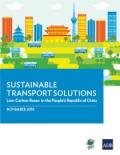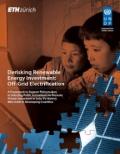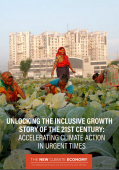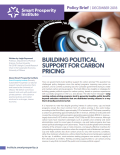
This report provides investment potential estimates across six key sectors (waste, renewable energy, public transportation, water, electric vehicles, and green buildings). Sector-specific investment potentials are estimated at the global and regional levels. The report also addresses urban resilience, financing solutions, and includes six deep dives into specific cities – one from each region – representing various sizes and stages of development:

Low-carbon buses (LCBs), which include hybrid, plug-in hybrid, and different types of electric buses, have been promoted widely in cities in the People’s Republic of China (PRC). This report summarizes the experience of 16 cities in the PRC with an urban bus fleet of 70,000 units, and includes performance data on around 20,000 LCBs, of which nearly 10,000 are pure electric vehicles. The objective of this report is to show real world performance data on LCBs in the PRC, their environmental and financial impact, as well as policies used to promote LCBs.

This report expands the UNDP's Derisking Renewable Energy Inestment (DREI) framework to private-sector models for solar-battery mini-grids. DREI is an innovative, quantitative framework to assist policymakers to cost-effectively promote private sector investment in renewable energy in developing countries. The report is accompanied by a financial Excel tool on mini-grid sizing and levelised costs.

This report sets out the policy and investment priorities for growth that that is strong, sustainable, balanced, and inclusive, and will result in efficient, liveable cities; low-carbon, smart and resilient infrastructure; and the restoration of degraded lands while protecting valuable forests. It focuses on five key economic systems: energy, cities, food and land use, water, and industry.

How can governments build political support for carbon pricing? This brief offers a few insights on strategies for building greater political support for carbon pricing, based on previous experiences with successful programs in the U.S. and abroad. The take home message? Long running carbon pricing programs tend to generate tangible public benefits beyond emissions reductions that are distributed among citizens in a way that is broadly perceived as fair.
